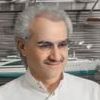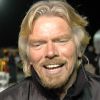10 Environmental Engineering Books That Experts Trust to Drive Change
Discover insights from Alwaleed Talal, Richard Branson, and Luis Von Ahn through these Environmental Engineering books shaping the future







What if the key to tackling climate change and water crises lay in the pages of a few carefully chosen books? Environmental engineering stands at the crossroads of science, technology, and policy, shaping how societies protect the planet's delicate balance. The urgency of climate challenges demands solutions that blend innovation with practical action.
Leaders like Alwaleed Talal, chairman of Kingdom Holding Company, and Richard Branson, Virgin Group founder, have turned to expert-recommended works to inform their sustainability efforts. Meanwhile, tech innovator Luis Von Ahn praises Bill Gates’s pragmatic approach to climate solutions, underscoring the need for data-driven strategies.
While these expert-curated books provide proven frameworks, readers seeking content tailored to their specific professional background, education level, or environmental focus might consider creating a personalized Environmental Engineering book that builds on these insights—offering a unique roadmap for your journey.
Recommended by Luis Von Ahn
CEO & co-founder of Duolingo, MacArthur Fellow
“I started reading @BillGates’s new book on climate change. What an amazing individual.” (from X)
by Bill Gates··You?
When Bill Gates first realized the urgent need to confront climate change, he drew on his extensive experience in technology and philanthropy to craft a practical roadmap toward zero greenhouse gas emissions. This book breaks down complex challenges across energy production, manufacturing, agriculture, and transportation, showing you which existing technologies can be scaled and where breakthroughs are essential. Gates also explores the role of policy and individual action, giving you a clear framework for understanding and engaging with the multifaceted solutions necessary to avoid environmental catastrophe. If you're seeking a grounded, data-driven perspective on climate action, this book offers valuable insights without oversimplifying the immense task ahead.
Recommended by David Roberts
Climate policy writer and energy analyst
“There’s been no real way for ordinary people to get an understanding of what they can do and what impact it can have. There remains no single, comprehensive, reliable compendium of carbon-reduction solutions across sectors. At least until now. . . . The public is hungry for this kind of practical wisdom.”
What if everything you knew about reversing global warming was wrong? Paul Hawken, an environmentalist and entrepreneur deeply engaged in sustainability, challenges the prevailing doom narratives by presenting 100 researched solutions that are already making a difference worldwide. You learn not only about cutting-edge technologies but also about social and economic practices, like educating girls in lower-income countries, that pull carbon from the atmosphere. This book suits anyone wanting a detailed, science-backed playbook for climate action rather than abstract theory or fear-driven rhetoric.
by TailoredRead AI·
This personalized book provides a systematic exploration of practical strategies to reduce environmental impact within the field of environmental engineering. It presents a tailored framework that aligns climate action methodologies with your specific industry challenges, geographic considerations, and sustainability goals. The book covers implementation of sustainable design principles, resource optimization, and regulatory compliance while addressing carbon footprint assessment and risk mitigation. By focusing on contextualized solutions, it cuts through generic advice to deliver actionable insights that fit your professional environment. The integration of adaptive methodologies ensures relevance whether you work in urban infrastructure, water management, or pollution control.
Recommended by Chris Hayes
Host of MSNBC's All In with Chris Hayes
“For people who want to learn more about climate change, rising sea levels and what it means for our future, read The Water Will Come.”
by Jeff Goodell··You?
When Jeff Goodell first realized the irreversible impact of rising sea levels on human civilization, he set out to document this looming crisis with a journalist’s rigor and on-the-ground perspective. You’ll gain a clear understanding of how climate change translates into flooding risks for iconic cities and vulnerable island nations, backed by detailed reports from twelve countries. Chapters exploring engineering attempts to hold back the water reveal both human ingenuity and the limits we face. This book suits anyone grappling with environmental futures—from engineers to policy advocates—providing a vivid picture of the challenges ahead without sensationalism.
Recommended by Richard Branson
Founder and CEO of Virgin Group
“There could not be a more important book.”
by Christiana Figueres, Tom Rivett-Carnac··You?
by Christiana Figueres, Tom Rivett-Carnac··You?
When Christiana Figueres and Tom Rivett-Carnac first realized the urgent stakes of the climate crisis during their work on the Paris Agreement, they crafted this book to outline two divergent futures. You gain clear insights into the tangible consequences of inaction versus the hopeful possibilities of a regenerative, net-zero world by 2050. The book breaks down complex climate policies and personal responsibilities, making it accessible if you want to understand how global and individual actions intertwine. It's particularly useful if you're engaged in environmental policy, corporate sustainability, or simply seeking a grounded perspective on climate change's crossroads.
by Andy D. Ward, Stanley W. Trimble, Suzette R. Burckhard, John G. Lyon··You?
by Andy D. Ward, Stanley W. Trimble, Suzette R. Burckhard, John G. Lyon··You?
When Andy D. Ward first reconsidered traditional hydrology texts, he sought to blend practical fieldwork guidance with theoretical insight, creating a resource that serves both newcomers and seasoned professionals. This book delivers detailed coverage on evapotranspiration, soil erosion, and stream processes, while also addressing emerging concerns like hypoxia and harmful algal blooms, supported by over 370 figures and 260 equations. You’ll find it particularly useful if you’re involved in environmental or agricultural engineering, needing a resource that bridges textbook theory with application and personal expert perspectives. However, it demands a serious commitment; casual readers might find its depth and technical scope challenging.
by TailoredRead AI·
This personalized book on urban water management provides a tailored framework that addresses the complex challenges of drainage and wastewater infrastructure in metropolitan environments. It explores systematic approaches to hydrological modeling, stormwater control, and wastewater treatment technologies, adjusting content based on your specific environmental engineering context and project goals. The book focuses on integrated urban water systems design and sustainable management practices, cutting through generic advice to deliver targeted methodologies suited to your city's infrastructure needs. By weaving together foundational principles with advanced implementation strategies, it offers a refined, actionable roadmap for managing urban water resources effectively within varied regulatory and climatic conditions.
by David Butler, Christopher Digman, Christos Makropoulos, John W. Davies··You?
by David Butler, Christopher Digman, Christos Makropoulos, John W. Davies··You?
Unlike most environmental engineering books that focus narrowly on theory, this text integrates engineering principles with real-world urban drainage challenges, drawing on the authors' extensive practical expertise. You’ll explore the design and upgrade of drainage systems, with detailed discussions on modelling, resilience, and smart technologies, supported by numerous applied examples. Chapters cover everything from managing rainwater to wastewater infrastructure in urban settings, making complex issues approachable whether you’re a student or a practicing engineer. If your work involves improving urban water management or you’re studying environmental engineering, this book offers the kind of depth and context that bridges academic and applied knowledge.
by Inc. Metcalf & Eddy, George Tchobanoglous, H. David Stensel, Ryujiro Tsuchihashi, Franklin L. Burton··You?
by Inc. Metcalf & Eddy, George Tchobanoglous, H. David Stensel, Ryujiro Tsuchihashi, Franklin L. Burton··You?
When Ryujiro Tsuchihashi and his co-authors updated this volume, they redefined how wastewater is perceived—not just as waste but as a valuable resource for energy, nutrients, and potable water. You’ll gain insights into advanced treatment technologies, the microbiology behind nutrient removal, and strategies for managing biosolids with a nod to sustainability and carbon footprint reduction. The chapters on stringent nitrogen and phosphorus discharge standards and energy-neutral plant designs provide you with a nuanced understanding of both regulatory and technological landscapes. If your work or study involves environmental or civil engineering, this book offers detailed technical knowledge that bridges theory with evolving real-world practices.
by Joanne E. Drinan, Frank Spellman··You?
by Joanne E. Drinan, Frank Spellman··You?
Drawing from her extensive background as a U.S. Navy chief petty officer and hands-on experience coordinating wastewater treatment operations, Joanne E. Drinan offers a clear and accessible introduction to water and wastewater treatment processes. The book walks you through each treatment unit, explaining their functions and equipment without relying on complex math or science jargon, making it approachable for nonengineers. You’ll find detailed chapters on drinking water purification and wastewater management, alongside updated regulatory insights and technological advances. If you’re involved in environmental services, public utilities, or just want a solid grasp of how water treatment works in practice, this book lays a practical foundation without overwhelming technical detail.
by Dr Jacob Petro PE··You?
When Dr. Jacob Petro PE first reconsidered common preparation methods for the Transportation Civil PE exam, he realized many candidates lacked a question-driven study approach that mirrors the actual exam format. This book focuses on 160 carefully crafted CBT questions aligned with the 2024 NCEES specifications, covering a wide range of transportation engineering topics including highway capacity, geometric design, and pavement structures. You gain not only practice questions but detailed explanations, alternative solutions, and visual aids that deepen your understanding of complex concepts. If you're aiming to pass the Transportation Civil PE exam efficiently with a practical, up-to-date resource, this guide offers a structured path tailored specifically to your needs.
by Rachel Carson··You?
by Rachel Carson··You?
When Rachel Carson first discovered the devastating effects of pesticides like DDT on ecosystems, she transformed scientific knowledge into a powerful narrative that reshaped environmental policy worldwide. In Silent Spring, you delve into detailed investigations of chemical impacts on air, water, and wildlife, learning to critically assess how human interventions disrupt natural systems. This book suits anyone engaged with environmental science or engineering who seeks a foundational understanding of ecological risks and the origins of modern environmental regulation. Chapters examining pesticide bioaccumulation and regulatory failures offer concrete insights that remain relevant for today's environmental challenges.
Get Your Personal Environmental Engineering Guide ✨
Stop following generic advice. Get targeted strategies without reading dozens of books.
Join 15,000+ Environmental Engineering enthusiasts who've personalized their approach
Conclusion
Together, these Environmental Engineering books reveal core themes: the urgent need for climate action, the complexity of water management, and the power of informed policy combined with engineering expertise. If you're facing challenges in coastal resilience, start with The Water Will Come and Urban Drainage for practical insights.
For rapid implementation of carbon reduction strategies, combine Drawdown and How to Avoid a Climate Disaster to grasp both macro and micro approaches. Meanwhile, those preparing for professional certification will find focused guidance in The Essential Guide to Passing The Transportation Civil PE Exam.
Once you've absorbed these expert insights, create a personalized Environmental Engineering book to bridge the gap between general principles and your specific situation—empowering you to make a meaningful impact.
Frequently Asked Questions
I'm overwhelmed by choice – which book should I start with?
Start with How to Avoid a Climate Disaster for a clear, practical overview of climate solutions. It sets a solid foundation before diving into specialized topics like water management or policy.
Are these books too advanced for someone new to Environmental Engineering?
Not at all. Books like Water and Wastewater Treatment explain concepts in accessible language, while others offer detailed technical insight for advancing your knowledge gradually.
What's the best order to read these books?
Begin with broad climate-focused titles such as The Future We Choose and Drawdown, then explore specialized works like Environmental Hydrology and Wastewater Engineering tailored to your interests.
Do I really need to read all of these, or can I just pick one?
You can pick based on your goals. For policy and strategy, choose The Future We Choose. For technical expertise, Urban Drainage or Wastewater Engineering are ideal.
Which books focus more on theory vs. practical application?
Environmental Hydrology and Wastewater Engineering lean toward technical theory, while Drawdown and The Water Will Come emphasize real-world applications and case studies.
How can I get content tailored to my specific Environmental Engineering needs?
While these expert books provide valuable insights, personalized content can address your unique goals and experience. Consider creating a personalized Environmental Engineering book to get focused guidance that complements these foundational works.
📚 Love this book list?
Help fellow book lovers discover great books, share this curated list with others!
Related Articles You May Like
Explore more curated book recommendations









